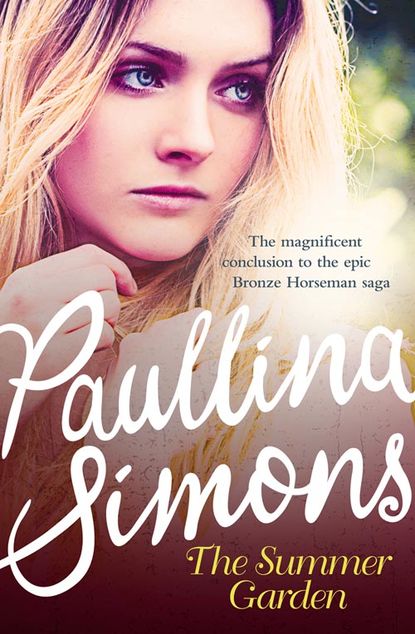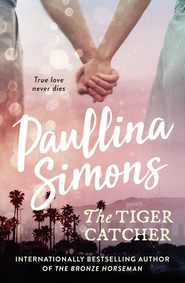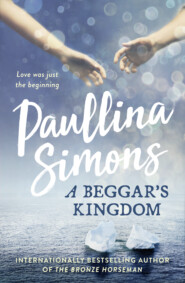По всем вопросам обращайтесь на: info@litportal.ru
(©) 2003-2025.
✖
The Summer Garden
Настройки чтения
Размер шрифта
Высота строк
Поля
Anthony was apparently a hit on the boat. “He was so busy making friends, he forgot to help his dad steer,” said Alexander. “And believe me when I tell you, I needed his help. Never mind, bud. Maybe tomorrow?”
“I can come again with you tomorrow?”
“If you’re a good boy for your mother, how about every day?”
Anthony leaped and hopped all the way home.
For dinner she made plantains and beef brisket from a recipe in her new cookbook.
Alexander liked it.
Tatiana set about cooking in every conceivable way what she called “the greatest New World creation since corn”—plantain. Not soft, not sweet, but otherwise banana-like, it went with everything. She bought flounder and fixed it with Mexican salsa and tomatoes and pineapples. But the plantains were the centerpiece of the plate. Tatiana had never had corn or bananas or plantains until she came to America.
“Heavenly plantains with rum,” she said, theatrically lighting a match and setting the plantains and frying pan on fire. Alexander was worried and skeptical until she spooned them over vanilla ice cream; the plantains were mixed with butter, dark brown caramelized sugar, heavy cream—and rum.
“Okay, I’m sold. Heavenly,” he said. “Please. Just a little more.”
The oven didn’t work properly; it was hard to make real bread in it. It wasn’t like the great big oven she had in her apartment in New York. Tatiana managed small challah rolls, from a recipe she had got from the Ukrainian Jews on the Lower East Side. It had been four months since her last conversation with Vikki. Her stomach went cold every time she thought of her and of Sam. She didn’t want to think about them. She forced herself not think of them.
Tatiana was good at forcing herself not to think of things.
Alexander liked the puffy and slightly sweet rolls. “But what, no plantain salad?” he teased when the three of them were eating their lunch on one of the picnic tables under the moss oaks and pines in Memorial Park.
She bought Alexander white cotton and linen shirts with white cotton slacks. She knew he was most comfortable in khaki or green fatigues and long sleeve crews—but he had to look like a boat captain.
Maintaining the boat took most of his time between tours—he learned to make repairs to the hull, the engine, the bearings, the fittings, the bilge pumps, the plumbing, the safety gear, the rails. He repainted the deck, replaced broken or cracked glass, changed the oil. Whatever it was, if it needed fixing, Alexander fixed it, all in his captain’s whites and shirtsleeves down to his wrists in the sweltering sun.
Mel, terrified of losing Alexander, gave him a raise to twenty-five dollars a day. Tatiana, too, wished she could give Alexander a raise, for the same reason.
In Miami there was a large Spanish population, and no one heard Tatiana’s Russian accent, no one knew her name was Russian. In Miami, Tatiana fit right in. Though she missed the smallness and the tightness and the smells of Deer Isle, though she missed the largesse, the expanse, the blaze of New York, she liked the Miami vanishing.
She made stuffed cabbage, which she knew Anthony liked from their time in New York. Alexander ate it, but after dinner said, “Please don’t cook cabbage again.”
Anthony got upset. He loved cabbage. And there was even a time when his father enjoyed cabbage pie.
But Alexander said no cabbage.
“Why?” she asked him when they were outside on their boat deck, bobbing above the water. “You used to like it.”
“I used to like a lot of things,” he replied.
You certainly did, Tatiana thought.
“I saw cabbage that grew as big as three basketballs on the mountain heaps of human ashes and remnants of bones in a death camp called Majdanek in Poland,” said Alexander. “It was freak cabbage like nothing you’ve ever seen, grown out of the ashes of dead Jews. You’d never eat cabbage again either.”
“Not even cabbage pie?” she said softly, trying to lure him away from Majdanek and into Lazarevo.
“Not even cabbage pie, Tania,” replied a not-to-be-lured Alexander. “No more cabbage pie for us.”
Tatiana didn’t cook cabbage anymore.
Anthony was told he was not allowed to leave the table unless his plate was empty.
“I’ll leave when I want,” said Anthony.
Alexander put down his fork. “What did you say?”
“You can’t tell me what to do,” said Anthony, and his father got up from the table so swiftly that Anthony knocked over his chair to run to his mother.
Taking him out of Tatiana’s arms, Alexander set him firmly down. “I can and I will tell you what to do.” His hands were on his son’s shoulders. “Now we’re going to try it again. You will not leave when you want. You will sit, you will finish your food, and when you’re done, you will ask to leave the table. Understand?”
“I’m full!” Anthony said. “Why do I have to finish?”
“Because you have to. Next time, Tania, don’t give him so much.”
“He said he was hungry.”
“Give him seconds. But today he will finish his food.”
“Mommy!”
“No, not Mommy—me! Now finish your food.”
“Mom—”
Alexander’s hands squeezed around Anthony. Anthony finished his food and asked to leave the table. After dinner, Tatiana went outside on the narrow deck where Alexander was sitting and smoking. She crouched carefully, uncertainly, by his side.
“You’ve been too soft on him,” he said. “He has to learn. He will learn.”
“I know. He’s so little, though.”
“Yes, when he is my size, it’ll be too late.”
She sat on the floor of the deck.
After a while Alexander spoke. “He can’t leave food on his plate.”
“I know.”
“Do you want me to tell you about your brother starving in Catowice?”
She barely suppressed her sigh. “Only if you want to, darling.” Only if you need to. Because, like you, there are many things I would rather never talk about.
In the POW camp in Catowice, Poland, where the Germans threw Alexander, his lieutenant, Ouspensky, and Pasha into the Soviet half—which meant the death half—Alexander saw that Pasha was weakening. He had no fuel to feed the shell that carried his life. It was worse for Pasha because he had been wounded in the throat. He couldn’t work. What they gave the Soviet men was just enough to kill them slowly. Alexander made a wood spear, and when he was in the forest cutting down trees for firewood, he caught three rabbits, hid them in his coat and, back at camp, cooked them in the kitchen, giving one to the cook, one to Pasha, and splitting one between himself and Ouspensky.
He felt better, but he was still starving. From Tatiana, during Leningrad’s blockade, he learned that as long as he constantly thought about food—about getting it, cooking it, eating it, wanting it, he was not a goner. He’d seen the goners—then in Leningrad, now in Catowice—the last-leggers, as they were called, the men unable to work, who shuffled through the camp’s trash eating what scraps they could find. When one of the goners had died, Alexander, about to dig a grave, found Pasha and three others eating the remains of the dead man’s slops by the fire at the outskirts of the barracks.
Alexander was made a supervisor, which did not endear him to his peers, but it did allow him to get a larger food ration, which he shared with Pasha. He kept Pasha and Ouspensky with him, and they moved into a room that housed only eight people instead of sixty. It was warmer. Alexander worked harder. He killed the rabbits and the badgers, and occasionally he didn’t wait to bring them back to camp. He built a fire and ate them on the spot, half cooked, tearing at them with his teeth. It wasn’t making much of a difference even to him.











